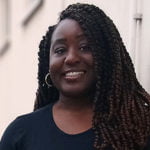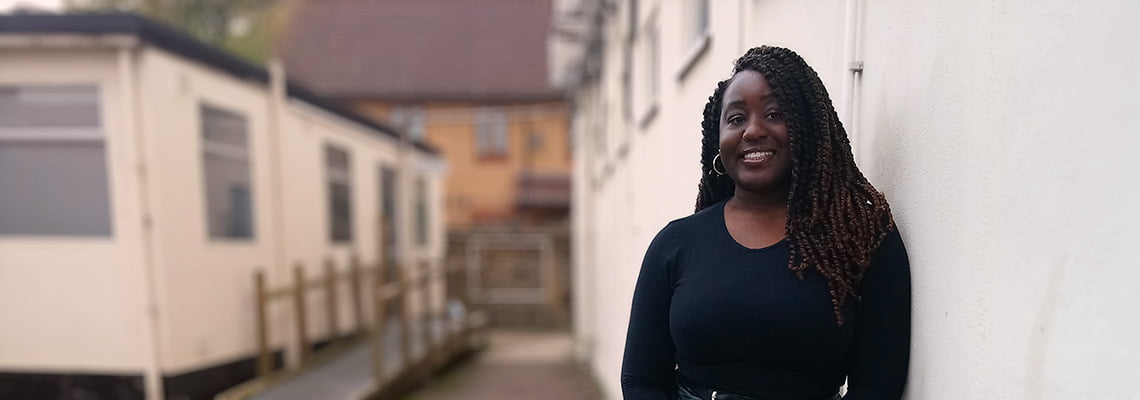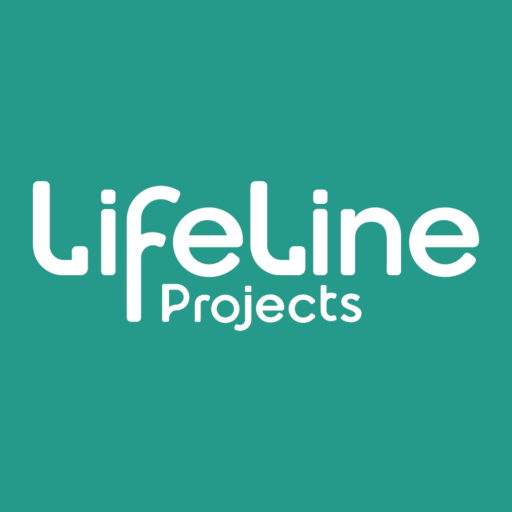This month, we’d like to introduce you to Serea, an outstanding youth worker who joined our SW!TCH team earlier this year and has been coordinated the delivery of our positive activities and other outreach activities across local boroughs.
Have you always worked in the charity sector?


Actually, no. I worked as a Therapy Worker and Patient Advice Liaison Support Officer (PALS) in Mental Health for several years. I learnt that there was a disconnect between the support available in hospitals and support available in communities. In communities, there really isn’t a support structure in place—there’s no one-to-one support. This ends up with a lot of people having to go back to hospital. And it’s the pretty much the same deal for young people coming out of offender units.
Is mental health discussed enough?


Mental health doesn’t get a lot of prominence, particularly in the black community. From my own experiences at work, I’m now less likely to make a snap judgement about people—I’m more open to just listening to them. When you don’t fully understand mental health, you can’t pick up on underlying issues. My hospital work taught me to understand that everyone experiences it—and experiences it differently.
How did you start working with young people?


I got tricked! My manager moved to another hospital and I ended up joining him. But a week before I started in my new role, they changed the contract to looking after young people. So I had to learn on the job. It was a lot more challenging than I expected.
What did you learn?


I’m traditionally a very safe person, not one that takes risks. It taught me not to keep holding back out of fear of something bad happening. Change can be a good thing—it challenges you.
What’s your favourite thing about working with young people?


They have the most genuine mindsets—they’re very logical. They actually taught me to not be afraid. And they’re very optimistic and that helps me too. They haven’t been jaded yet. They have the ability to bounce back.
Where did you grow up?


I grew up in Hackney and lived there until I was nine years old. Then we moved to Leytonstone. I have an older sister and we were brought up by my mum. Later on, we were joined by a stepfather. My biggest role model is my grandad; he passed away five years ago. When my mum decided to move to Leytonstone, she took a leap of faith—she wanted a fresh start. Then my other aunties moved their families out later on. They all wanted a different life. But there is still crime in the outer boroughs; that wasn’t something I expected.
What’s been the most challenging thing you’ve gone through recently?


During COVID, I had to do everything online, including learning. I’m a very face-to-face person so that was so hard for me. I learnt that there was no way I could work in a call centre—I need to be with people. Another challenging experience I had was when I moved to Canterbury for university. I’d never been away from my family and I had to create a new support network. I actually ended up making lifelong friends in Canterbury. It taught me that I can have nothing and still be able to create something. For a little while after that, I had thoughts about moving to America.
Everyone that meets you finds you bubbly and happy. Are you like this all the time?


I am very bubbly, I don’t like being unhappy. I always try to look for a solution. I don’t want to lose my motivation. Young people have that in their spirit.
When did you join LifeLine?


I joined eight months ago. My first impression is that it was really different from working in a hospital. There, I was putting out fires all the time. LifeLine is calmer and slower than that. I feel that it’s given me the time and space to develop. The community issues are definitely tougher to deal with and finding the appropriate support for young people can be challenging. All the staff are really close to each other, like a family; the hospitals are lot more focused on hierarchy.
Do you have a secret skill?


I write short stories, I write a lifestyle blog. I’m trying to put together a kid’s story book with a heroine struggling with many problems from a traumatic childhood.
Is that based on your childhood?


No, my sister was the rebellious one. I was the overlooked child. I managed myself. I wanted to be a form of guidance for people that were in the middle of madness but felt like they were coping. Just because someone’s not asking for help doesn’t mean they don’t need help. Not feeling validated stops people asking for help.
What are your future plans?


I’d love to start my own project—I’d like to help young people in my local community that have just come out of hospital. I’m big on the community. It’s my Caribbean girl spirit.



